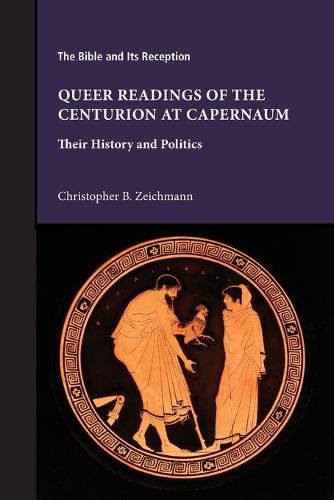Readings Newsletter
Become a Readings Member to make your shopping experience even easier.
Sign in or sign up for free!
You’re not far away from qualifying for FREE standard shipping within Australia
You’ve qualified for FREE standard shipping within Australia
The cart is loading…






This title is printed to order. This book may have been self-published. If so, we cannot guarantee the quality of the content. In the main most books will have gone through the editing process however some may not. We therefore suggest that you be aware of this before ordering this book. If in doubt check either the author or publisher’s details as we are unable to accept any returns unless they are faulty. Please contact us if you have any questions.
Since the 1950s, homoerotic readings of the pericope in which Jesus heals a Roman centurion's slave have been built upon the specific Greek word pais, which can refer to youth, slave, or the junior partner in a sexual relationship between two men; Luke's characterization of the young man as "dear" (entimos) to the centurion; and commonplace homoeroticism in the Roman army. In this book Christopher B. Zeichmann traces shifts in queer readings of the text and the influences of the sexual, political, and theological discourses of the late twentieth and early twenty-first century.
$9.00 standard shipping within Australia
FREE standard shipping within Australia for orders over $100.00
Express & International shipping calculated at checkout
This title is printed to order. This book may have been self-published. If so, we cannot guarantee the quality of the content. In the main most books will have gone through the editing process however some may not. We therefore suggest that you be aware of this before ordering this book. If in doubt check either the author or publisher’s details as we are unable to accept any returns unless they are faulty. Please contact us if you have any questions.
Since the 1950s, homoerotic readings of the pericope in which Jesus heals a Roman centurion's slave have been built upon the specific Greek word pais, which can refer to youth, slave, or the junior partner in a sexual relationship between two men; Luke's characterization of the young man as "dear" (entimos) to the centurion; and commonplace homoeroticism in the Roman army. In this book Christopher B. Zeichmann traces shifts in queer readings of the text and the influences of the sexual, political, and theological discourses of the late twentieth and early twenty-first century.